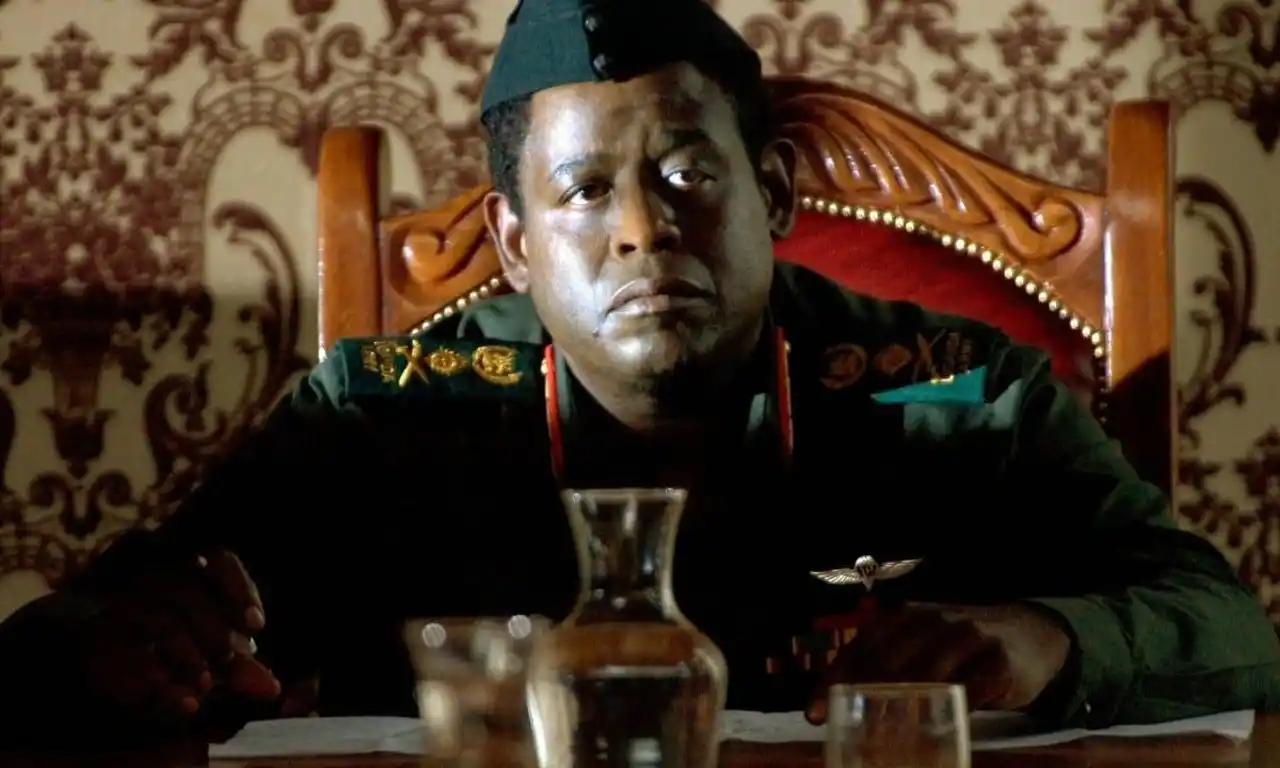Beware of false mea culpas

Any anniversary of a major event inevitably brings with it the usual by-the-numbers reminiscences. These are typically driven by a media desire for eyeballs and clicks, but occasionally the stakes are high enough to introduce more complex motivations. The 20th anniversary of the U.S. invasion of Iraq is one such instance, and it brought out a Rashomon-like display of conflicting accounts from major players of the time. Most egregious of these, to my mind, are from those figures who then distinguished themselves by their enthusiasm for the war, and now feel compelled to correct the record for their benefit.
Some, like Paul Bremer and Eli Lake, insist on accentuating the positive. Some, like Max Boot and Robert Kaplan, are now (two decades hence!) prepared to disavow the war that caused so much destruction. And others, like David Frum, prefer to take the “mistakes were made” line. I think it is telling that we are seeing these apologias now from a certain cohort: those old enough to have played some role in the events of the time, but young enough that their careers are in some sense still in the balance. Having played an outsized role in authoring the events of the time they now seem bent on authoring its history as well.
Having invoked Rashomon, this would be the customary point to pivot to a larger theme of the mutability of truth; but people forget that after we viewers are made witnesses to the competing narratives, we do in fact discover the real story, courtesy of an independent observer. I am not exactly an independent observer, but I was an undergraduate when the 9/11 attacks hit us, and those events and their aftermath were, I think it’s fair to say, formative for my generation. Moreover, like far more people than would presently admit, I was in favor of the war during the long year-and-a-half between the collapse of the towers and the start of the invasion.
By the end of that year, I had begun to change my mind, though this was only part of a more comprehensive shift in how I thought about the world and the United States’ interests in it. I bring this all up not as prologue to my own mea culpa (who would care?), nor because I think this autobiographical sketch is particularly remarkable (it isn’t). Rather because, coming from a younger generation that was marked by these events without being implicated in them, and being too young to have committed any vested professional or personal stake in upholding that support past the point of reason or evidence, I can perhaps be a bit more transparent about some of the prevailing sentiments underlying the official story.
Having lived through that era at a particularly impressionable age, it is pretty clear that the post-mortems on display are not remotely doing justice to the complex of motivations that underlay the decision to invade Iraq, and perhaps more fundamentally they fail to acknowledge the heightened and hysterical tenor of the times, which surely shaped much of the prevailing commentary surrounding that decision.
For, I can still remember what the 9/11 attacks felt like: the white-hot anger that came on the heels of shock and kicked in well before anything like grief. The toppling of the Taliban came too quickly and easily to assuage that anger. Plus, everyone knew that Afghanis themselves had played no direct role in the attacks.
We still wanted to hit someone, and it felt good to have a policy that could channel that desire. With Saudi Arabia completely off the table for strategic and economic reasons, how fine it felt to have as deserving a target as Baathist Iraq! Of course, one would never have said that they just wanted to kill Arabs—though it must be said that some of the more belligerent voices at the time (Victor Davis Hanson, Michael Ledeen, Ralph Peters, et al.) came very close to saying just that.
The wonderfully convenient part about advocating war against Iraq was how it allowed one to thread the needle between spirited anger and liberal conscience. Yes, we were in fact going to bring the might of the world’s only superpower against an Arab country, but we were going to do it in the service of democratic ends. Indeed, by this logic, it was those opposed to the war who could be tarred as racists for supposing that Arabs were not ideal candidates for democratization. This transparently expedient bit of sophistry proved surprisingly effective at the time, and likely played a role in making the war as popular as it in fact was, at least up until the summer of 2003, when certain realities began to set in.
But until then, how satisfying it was to smugly tell leftists that they were the real racists for doubting that Arabs were capable of democracy, while at the same time indulging our own thymotic urge to smash a country to bits. George Orwell’s line about pacifism being “objectively pro-fascist” was wrenched from its historical context and pressed into service of the anti-Saddam case against those who would leave him in place. Sorry, we don’t make the rules: if you opposed our invasion of Iraq, you were objectively pro-thumbscrews and rape dungeons.
And, of course, this sanctimony went hand in hand with the military case that pacifying—not just successfully invading—Iraq could be measured in weeks. The Kristols and Friedmans, among many others, confidently made this argument too in very public venues. And these were buttressed by the legions of military bloggers (or “milbloggers”) that sprang up in the wake of 9/11, most of whom could not—to put it charitably—be accused of harboring excessive practical or theoretical knowledge of military affairs. Half-digested extracts from Samuel Huntington or Bernard Lewis were speedily interpreted into new theories of grand strategy centered on the Middle East.
Of course, one can’t be too hard on the random guys in a basement with a LAN connection, when major public figures both in and out of the Bush administration were making substantively the same arguments (e.g., Condoleezza Rice’s comparison of the Iraqi insurgents with the basically nonexistent “Werwolf” plan for the Germans to continue fighting after the formal Nazi defeat). I won’t belabor this: this was an insane time that gave rise to enormously destructive and stupid policies, and I haven’t even gotten into the popular discourse surrounding the ethics of torture.
Looking back, some words of Thucydides seem particularly apt: “Reckless audacity came to be considered the courage of a loyal ally; prudent hesitation, specious cowardice; moderation was held to be a cloak for unmanliness; ability to see all sides of a question, inaptness to act on any.”
Or, more succinctly: “The advocate of extreme measures was always trustworthy; his opponent a man to be suspected.” Those words concerned the terrible revolution in the ancient city of Corcyra. And while we Americans happily made out quite a bit better than the unfortunate Corcyrans, the countries that have periodically occupied our attention were rarely so lucky. Moreover, our own advocates of extreme measures are not only still mostly alive and kicking but continue to enjoy influence and esteem out of all proportion to their wisdom or track record of success. (How they effectively latched their own agendas onto the prevailing anti-Trump sentiments of the past several years is its own, and frankly quite irritating, story.) The truth here is that your career will suffer far more from being right in opposition to military action than in being wrong in favor of it.
Does any of this matter? Is all this just a matter of the amour propre of a handful of pundits and the ire of their critics? Alas, yes it does. Irony of ironies, but the disastrous neoconservative track record in foreign policy has proven no bar to its influence. Indeed, in a series of events that would require far more words and time to unpack, even as neoconservatism itself functioned as a kind of rhetorical bogeyman throughout much of the first decade of this century, its ideas successfully permeated the geopolitical thinking of our entire policy making establishment.
One no longer has to look to the old bylines like Kristol and Kagan for unvarnished declarations of primacy (though the fact that Robert Kagan’s wife has played an outsized role in events surrounding Ukraine since before 2014 is but another page in this book…). The ideas themselves—of the necessity of American global might, the perfidy of its enemies, and the moral cowardice of attempting to weigh interests in the balance—these are now mainstays of our foreign policy discourse.
They were present during the interventions in Libya and Syria, and they are strongly present now as we become ever more involved in the defense of Ukraine. This way of thinking no longer represents a particular disposition when it comes to U.S. foreign policy but is, for all intents and purposes, coextensive with the policymaking establishment itself.
The fever of those years has broken, but the patient never quite recovered. I have no opinion on “Long COVID,” but something like this came to afflict our country at the highest levels of decision-making. We now speak in the basic grammar of the post-9/11 era and cannot seem to recall any other way of talking. I don’t wish to idealize the more distant past, which saw more than its shares of blunders and general destructiveness, with truly unfortunate impacts on our political discourse—from World War I through Vietnam. But it suffices to say that this is our present discourse, and it would behoove us to recover some way of speaking both more coolly and more decently about the real interests of our country as they actually bear on the lives of our millions of citizens.

So, yes, it matters. The past isn’t even past. And now, surveying the recollections of the original advocates, as they work through what the spirit of ’02-’03 really meant, it is striking to see how parochial they remain. One thinks of the remarkable climactic scene of The Last King of Scotland, when Idi Amin tells the hapless protagonist: "we are not a game, Nicholas; we are real."
But the reality of Iraq, Afghanistan, and their successor targets was, I think, always less real to the punditocracy than the op-ed pages, and television appearances, and policy briefings at home. Judging by the callow retrospections of the past month, they still are.
